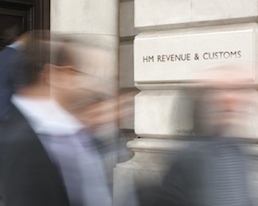Details on dividend tax credit changes provided by HMRC are ‘misleading’, an accountancy firm has claimed.
Blick Rothenberg, the London Chartered Accountants, has criticised the information released by officials this week and estimated basic rate taxpayers may be worse off by £1,700 per annum under the new rules.
The Treasury said in July that the dividend tax credit would be replaced with a new tax-free allowance of £5,000 of dividend income for all taxpayers. It takes effect from April 2016. The Chancellor said the move would “simplify the taxation of dividends”.
But Nimesh Shah, Partner at Blick Rothenberg, has hit out at the latest details from HMRC. He said: “HMRC’s factsheet states, “the Dividend Allowance means that you won’t have to pay tax on the first £5,000 of your dividend income”.
“However, under the present system, an individual with no other income can receive just over £38,000 of dividend income tax free. This can affect individuals who simply have a portfolio of listed shares that pay dividends, such as Vodafone, Barclays and BP.
“HMRC’s factsheet is misleading, suggesting that you will be better off next tax year with the introduction of the Dividend Allowance.”
HMRC was contacted by Financial Planner Online this morning for a response to the claim but is yet to respond.
Officials at HMRC said in the update that the £5,000 tax-free allowance would still be taken into account when assessing someone's overall income for tax purposes.
The report said: “The Dividend Allowance will not reduce your total income for tax purposes. However, it will mean that you don’t have any tax to pay on the first £5,000 of dividend income you receive.
“Dividends within your allowance will still count towards your basic or higher rate bands, and may therefore affect the rate of tax that you pay on dividends you receive in excess of the £5,000.”
{desktop}{/desktop}{mobile}{/mobile}
Mr Shah said: “Earlier this week, the Treasury clarified the rationale behind the increase to the dividend tax rates. The Treasury explained that the changes are intended to deter small businesses from using companies where directors would remunerate themselves by paying dividends rather than take a salary.
“There doesn’t seem to be any logic to the Treasury’s rationale as there are many reasons why small businesses prefer to operate through a company, not at least limitation of liability.”
“The dividend tax rate increase simply appears to be nothing more than a tax raising measure, with the Government estimating it will generate close to £6.8 billion during this Parliament.”
The Government has set the dividend tax rates at 7.5% for basic rate taxpayers, 32.5% for higher rate taxpayers and 38.1% for additional rate taxpayers but there will be no tax credit. There will be an increase of 7.5% where dividend income exceeds £5,000.
Previously, individuals in receipt of dividends benefited from a 10% tax credit, which for basic rate tax payers meant they could enjoy their dividend tax free. Higher rate tax payers paid an effective 25% tax rate.
Financial Planners have said smaller firms would have to review how they pay directors as a result.

